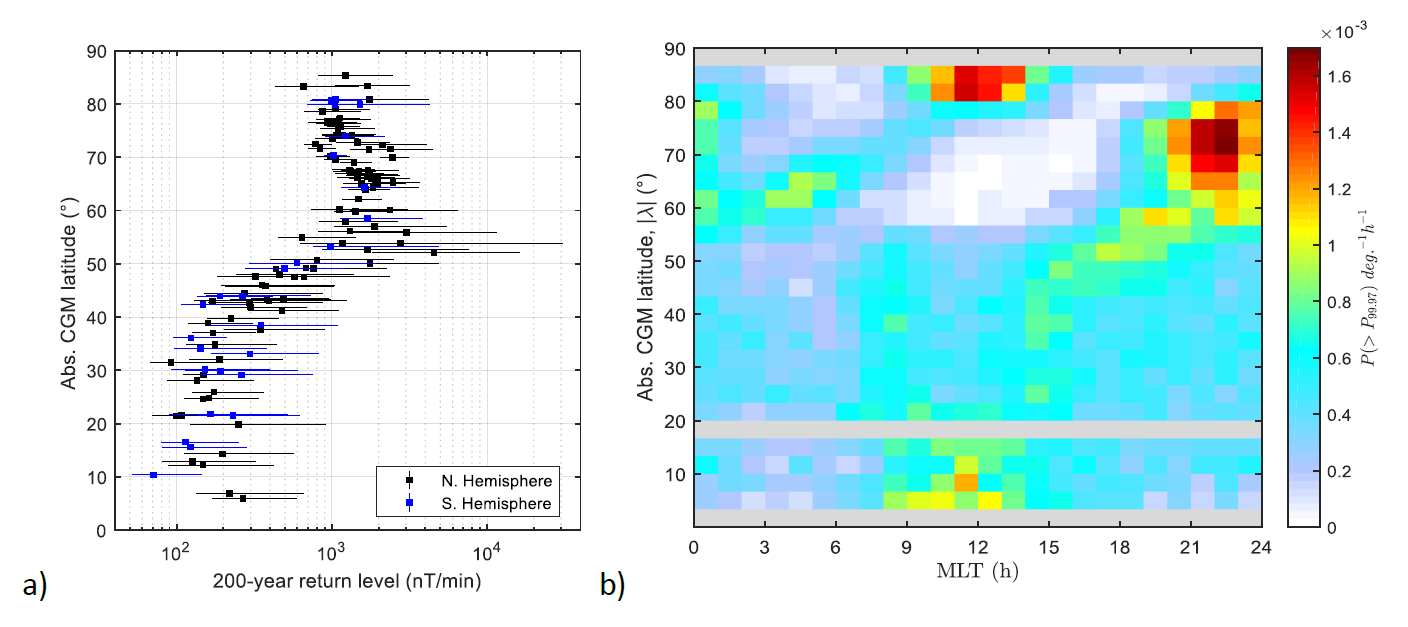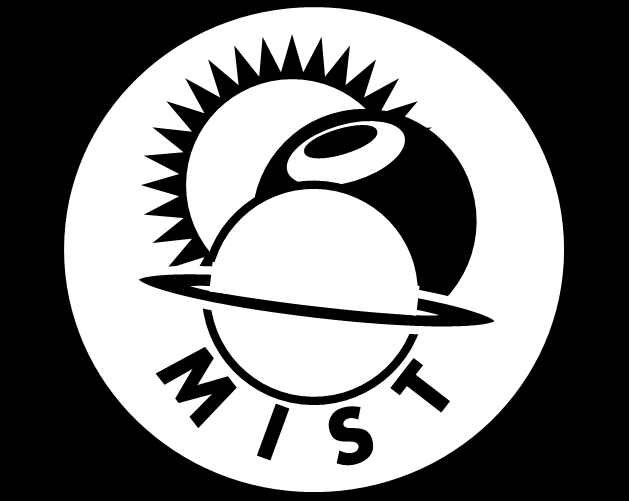MIST
Magnetosphere, Ionosphere and Solar-Terrestrial
The Climatology of Extreme Geomagnetic Field Fluctuations
by Neil Rogers (Lancaster University)
Strong electrical currents in the Earth’s ionosphere and magnetosphere can produce geomagnetically induced currents (GIC) in ground-based infrastructure, such as electricity cables. For extreme conditions this can lead to instability and failure of the electricity supply. The magnitude of these currents is proportional to the rate of change of the horizontal geomagnetic field, dBH/dt. Climatological statistics of |dBH/dt| may be combined with models of ground conductivity and impedances in the electricity network to evaluate the risk of GICs.
Using 1.9 billion measurements from 125 magnetometers worldwide we fitted Generalised Pareto (GP) distributions to occurrences of dBH/dt above the 99.97th percentile (P99.97). By extrapolating the GP tail distributions we predicted the magnitude of dBH/dt expected every 200 years. This is shown in Figure 1a (with 95% confidence intervals) as a function of corrected geomagnetic (CGM) latitude.

Figure 1. a) 200-year return levels for |dBH/dt|. b) Occurrence probabilities of |dBH/dt| > P99.97 vs CGM latitude and MLT.
The sharp increase near 53° CGM latitude suggests that the largest |dBH/dt| result from substorm expansions in a greatly expanded auroral region. Figure 1b presents the occurrence probability of |dBH/dt| > P99.97 vs latitude and magnetic local time (MLT). In the auroral zones this maximises in the hours before midnight due to substorm activity and in the 3-10 MLT sector due to ULF wave activity. Poleward of the dayside cusp region (~77° CGM latitude) occurrence rates increase near local noon, in summer, and under northward interplanetary magnetic field (IMF), indicating a relation to magnetospheric tail-lobe reconnection. At latitudes below 40° most occurrences were related to Sudden Commencements, the effect of shock fronts arriving in the solar wind.
This study models extreme dBH/dt as functions of latitude, MLT, month, and compass direction for return periods up to 500 years, and examines the effect of IMF orientation. The results demonstrate the response of the geomagnetic field to different drivers, and have significant potential in advancing modelling of GIC hazards.
For more information, please see the paper:
Rogers NC, Wild JA, Eastoe EF, Gjerloev JW & Thomson AWP. 2020. A global climatological model of extreme geomagnetic field fluctuations. J. Space Weather Space Clim. 10, 5. https://doi.org/10.1051/swsc/2020008
